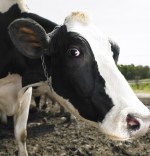 I have been involved in animal advocacy for nearly 20 years. My work has involved scholarly research on animal issues, blogging about animal rights, and, for three years, teaching a university course on social justice and animals.
I have been involved in animal advocacy for nearly 20 years. My work has involved scholarly research on animal issues, blogging about animal rights, and, for three years, teaching a university course on social justice and animals.
Writing is my chief means of communicating, relating to the world, solving problems, examining issues, and reflecting on my own values and beliefs. As such, it has played a vital role in my thinking about animals
Researching animal issues, reading dozens of papers in which students grapple with their own attitudes toward animals, and exploring animal rights on the page has, more than anything else, shaped my thinking about the nonhuman beings with whom we share the Earth.
Writing has made me aware of the suffering of animals.
Like many people, I knew long ago that animals used for food, clothing, and laboratory testing, are treated with indifference and cruelty. But it was only through writing that I came face to face with the extent of the brutality they experience.
When you write frankly about the lives of animals on factory farms, in labs, in zoos and circusses, you become starkly aware of their suffering. The sheer numbers of animals—and the horror of the violence they endure—becomes something you can no longer sweep under the rug. When you put it on the page, you have to face it head on.
Writing has helped me see the weaknesses of the arguments against animal rights.
I hear them all the time. From people who are otherwise sensitive and caring. From people supportive of other social justice movements. From people who consider themselves logical and reasonable. Arguments for why we shouldn’t care about animal suffering abound.
I can’t help wondering what would happen if the people who make these arguments sat down and wrote about them. If they had to explore their arguments with the care, thought, and insight that good writing requires, they would have to see how flawed and empty they are.
Take arguments like these:
“When you grow up on a farm like I did, you become used to killing animals. It’s just the way things are done.” In other words, if you’ve done something for a long time and are used to it, that makes it morally acceptable.
“Everything dies. Everything you do kills something.” Remember to offer that as an excuse if you ever kill a human being. He was going to die eventually anyway. So that makes it okay.
“Killing animals is no different from killing plants.” So, if the killing of a conscious being who has emotions and relationships and wants to live is the same as killing a plant, then the killing of a human being must be the same too. Right?
“It’s traditional.” “It’s natural.” “It’s ordained by God.” Don’t people know that the same arguments were offered for centuries to support the oppression of women? That the same arguments are given by all oppressors?
If the people who offer these arguments were forced to support them on the page, something in their thinking would have to alter. They might not change their minds, but at least they would have to think about animals with more depth.
Writing has enabled me to develop an “I-thou” relationship with animals.
Jewish philosopher Martin Buber discussed two ways we address the world around us. When we engage an “I – it” attitude we relate to others as members of categories, as objects. The other being is seen as separate and different from us—something to be used or experienced, rather than related to.
But when we have an “I – thou” relationship with another being, we are not separate from it. We see our essential sameness. We empathize. We communicate. We relate.
Coming to see animals as “thou”—and not just a handful of cats and dogs with whom I’ve shared my home over the years, but all animals—has profoundly and permanently altered the way I see the universe. It was writing that brought me to an I – thou relationship with my nonhuman kin, and in doing so, it opened up my world.
You may not be engaged in animal issues—or even sympathetic to them—but you undoubtedly do have issues that are close to your heart. How has your writing shaped your thinking about them? In what ways has it brought you clarity and insight?
[simple_contact_form]
I’m very familiar with those arguments, and your rebuttals are really well thought out and rational. When people say those types of things to me I find it hard to come up with answers because I get too emotional, so I just try to end those conversations quickly. In regards to writing about issues that are important to me, I write a blog about my goal to pick up trash every day. Since I started writing, I’ve been doing it a lot more often than I used to because I feel like I’d be letting people down otherwise. I’ve also become a lot more knowledgeable about environmental and social issues because I feel like I should be careful not to spread misinformation.
Hi Whitney. I have to fight getting emotional in those discussions, too, because the issue is so important and so many people just refuse to see it. I think it’s great that you pick up trash every day. That’s a good things to do, and I love the fact that you blogged about it to encourage yourself to do it. Thanks for sharing your story.